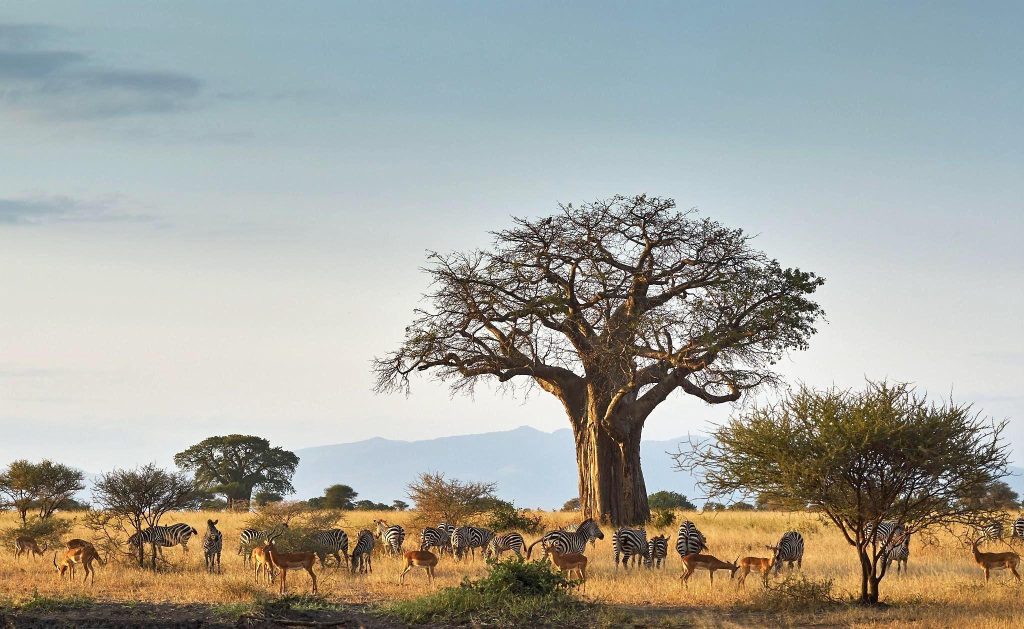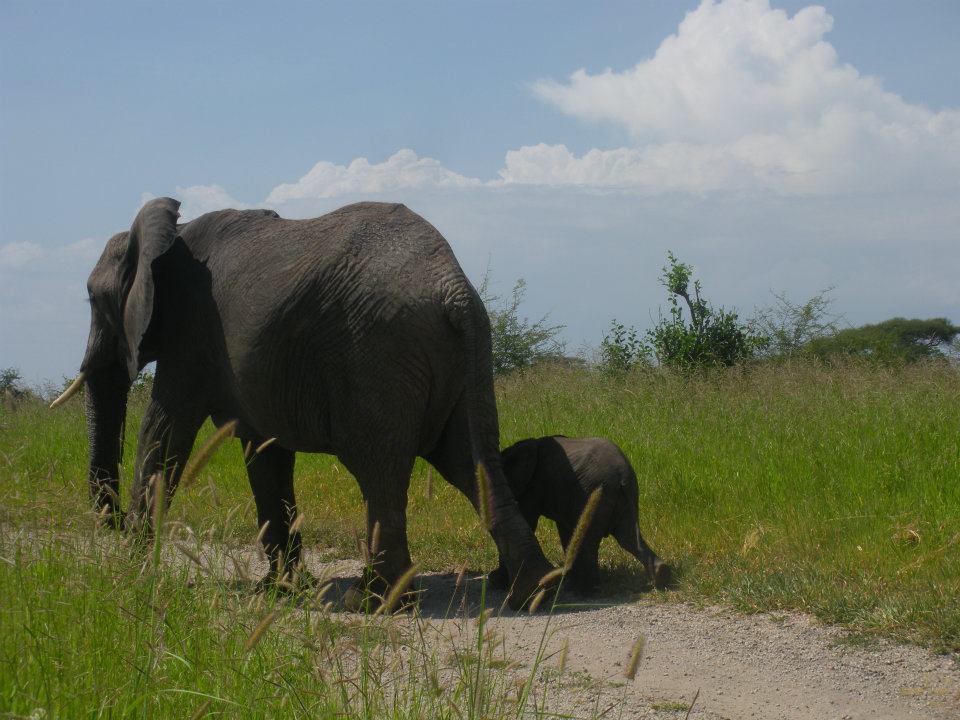Tarangire National Park
overview
This park attracts a great amount of animals because it contains an important water source, the Tarangire river. Especially in the dry season a lot of animals migrate to Tarangire for this water source. Other times of the year this park gets very green.



If you are interested in seeing the centuries old Baobab trees, this park is a must to visit. According to the Maasai the Baobab was the first tree on earth. These massive trees reach heights of 5 to 30 meters (16 to 98 ft) and have trunk diameters of 7 to 11 meters (23 to 36 ft). The trees can store up to 120,000 liter of water in its swollen trunk and the elephants take great use out of it by eating the moist wood. Maybe that is why this park contains the highest amount of elephants per square kilometer in the world. You will be amazed how close the elephants will get to your vehicle.
Other animals seen in this park are lions, cheetahs, zebras, kudus, antelopes and buffalos. This park is also great for bird-watching, with over 300 species recorded.
Tarangire National Park’s pythons climb trees, as do its lions and leopards, lounging in the branches where the fruit of the sausage tree disguises the twitch of a tail. Are you interested to see them, then choose our Tanzania Safari Packages.
Contact Materuni Tours, one of the local tour operators of Tanzania and get ready to explore the best of Tarangire National Park.
While migrating wildebeest, zebra, buffalo, impala, gazelle, hartebeest, and eland throng the diminishing lagoons, herds of up to 300 elephants scratch the parched river bank for subterranean streams. It’s the largest concentration of wildlife outside of the Serengeti environment – a feast for predators – and the only site in Tanzania Safari Destinations where dry-country antelope like the majestic fringe-eared oryx and strange long-necked gerenuk may be seen on a regular basis.
About Tarangire National Park
Size: 2850 sq km (1,096 sq miles).
Location: 118 km (75 miles) southwest of Arusha.
Getting There
An easy drive from Arusha or Lake Manyara following a surfaced road to within 7km (four miles) of the main entrance gate; can continue on to Ngorongoro Crater and the Serengeti.
Charter flights from Arusha and the Serengeti
When To Go?
Year round but dry season (June – September) for sheer numbers of animals.
What To Do?
Guided walking safaris.
Day trips to Maasai and Barabaig villages, as well as to the hundreds of ancient rock paintings in the vicinity of Kolo on the Dodoma Road.
Accommodation
Two lodges, one tented lodge, two luxury tented camps inside the park, other half-dozen exclusive lodges and tented camps immediately outside its borders.
Several campsites in and around the park.
Other Related Destinations
Serengeti National Park
- Safari Destinations
Serengeti is the biggest National Park of Tanzania and even listed on the World Heritage List of Unesco.
Ngorongoro Conservation Area
- Safari Destinations
The Ngorongoro Conservation Area (NCA) is actually part of the Serengeti plains to which the Maasai Mara (Kenya) also belongs to.
Tarangire National Park
- Safari Destinations
This park attracts a great amount of animals because it contains an important water source, the Tarangire river.
Lake Manyara National Park
- Safari Destinations
Only one third of this national park is land, the rest is swamp or water. The area has a size of 325km²
Arusha National Park
- Safari Destinations
Situated on the slopes of Mt. Meru, this park is only an hour drive from Arusha. Besides all the wildlife.
Mkomazi National Park
- Safari Destinations
Set beneath the verdant slopes of the spectacular Usambara and Pare Eastern Arc Mountain ranges and overseen
Lake Natron
- Safari Destinations
Lake Natron is situated north of the Ngorongoro Conservation Area and reachable by an adventurous route passing Engaruka village. The area is not as well known as the other nature parks,
Mount Kilimanjaro National Park
- Safari Destinations
Kilimanjaro is the tallest free-standing, snow-capped tropical mountain in the planet. Stories about her resident man-eating spirits have been consigned to the realms of mythology now




